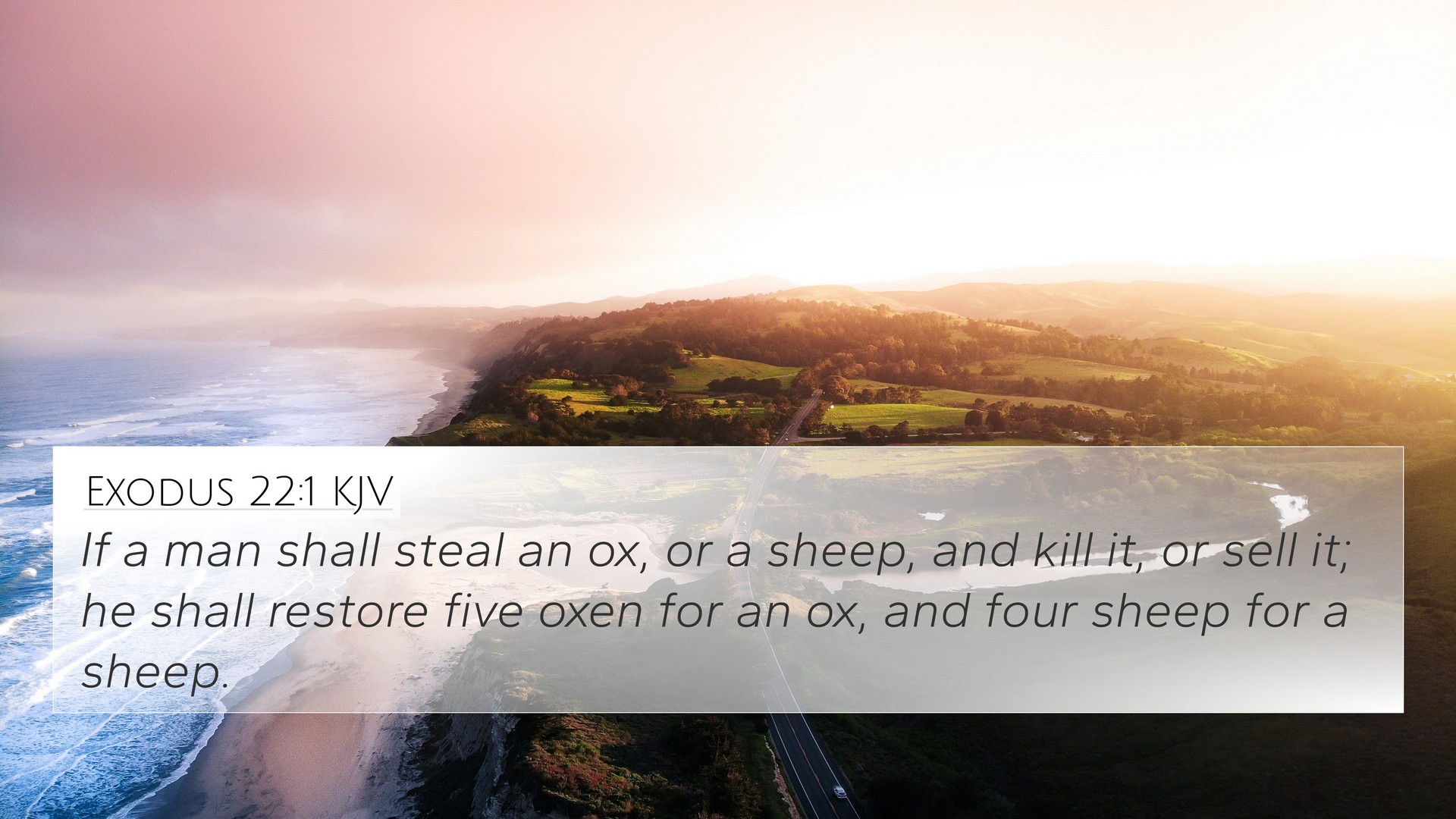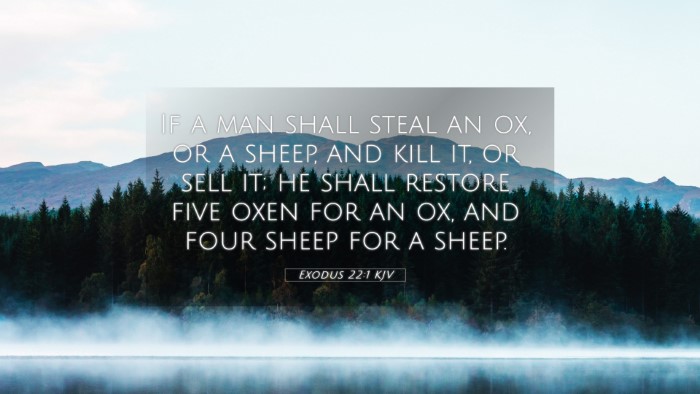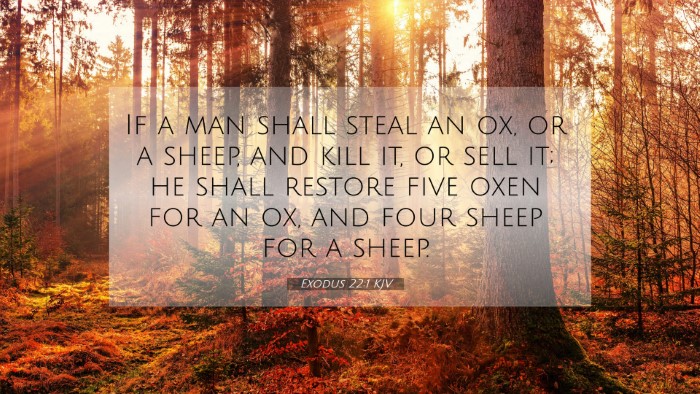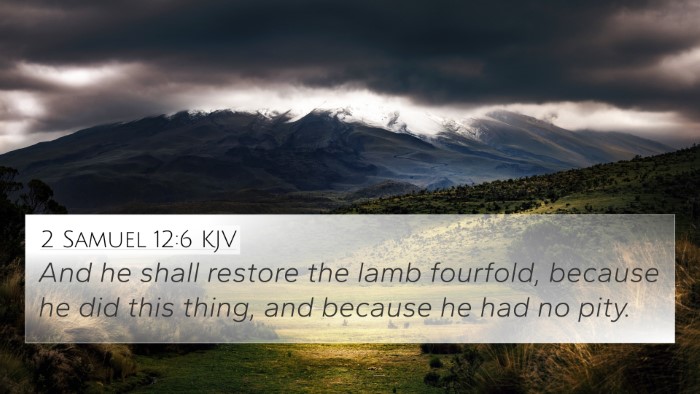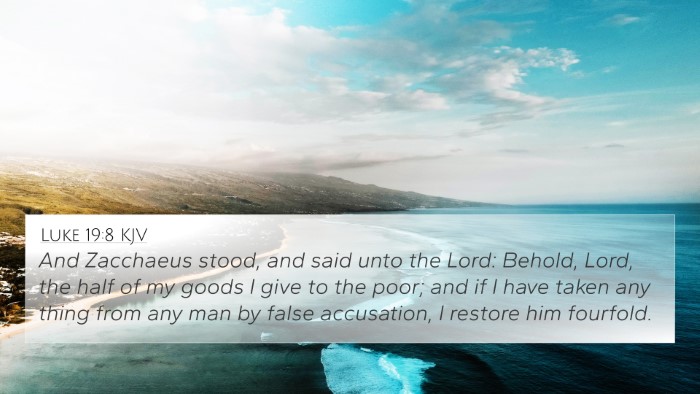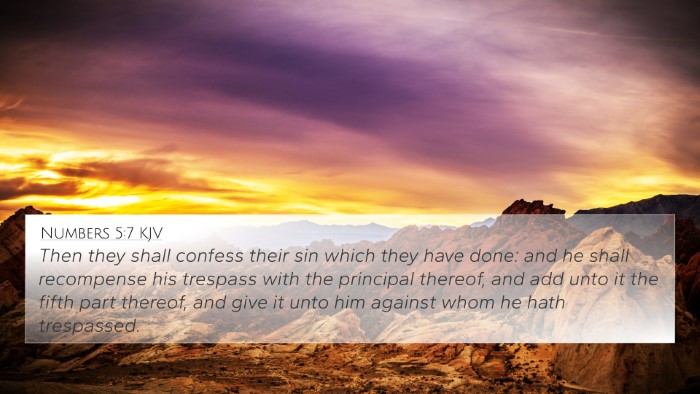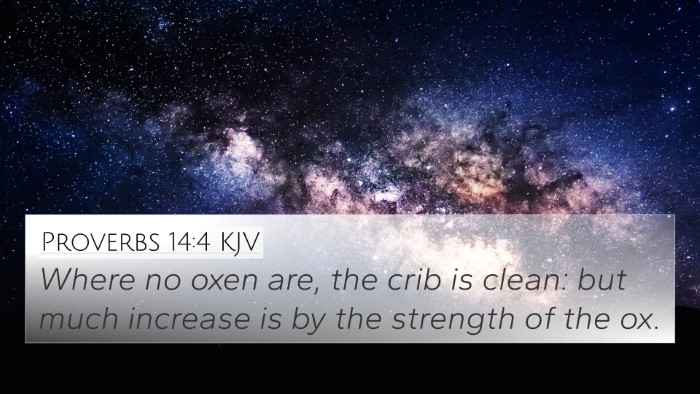Exodus 22:1 - Meaning and Interpretation
Bible Verse: Exodus 22:1 - "If a man shall steal an ox, or a sheep, and kill it, or sell it; he shall restore five oxen for an ox, and four sheep for a sheep."
Summary of Meaning
Exodus 22:1 provides a legal framework concerning theft in ancient Israel, specifically addressing the restitution required for theft and the penalties associated with it. This verse emphasizes justice and accountability in society.
Insights from Public Domain Commentaries
-
Matthew Henry's Commentary
Henry highlights the seriousness of theft, establishing a clear and stringent penalty for stealing livestock, which were essential for sustenance and economy. The emphasis on returning multiples of what was stolen reflects a principle of restoring justice and deterring future wrongs.
-
Albert Barnes' Notes
Barnes elaborates on the practical implications of the law, noting that livestock was a significant asset during that era. The restitution structure underscores the importance of property rights and the community’s need for order. Barnes also points to the idea that such laws would cultivate a sense of responsibility among individuals.
-
Adam Clarke's Commentary
Clarke discusses the cultural context of the law, explaining that the high restitution serves as a deterrent to theft. He also notes the social dynamics at play, where livestock represented wealth and purpose. Clarke suggests this law aims to maintain social harmony and protect individuals’ livelihoods.
Key Themes and Connections
Exodus 22:1 serves as a grounding principle in understanding Biblical justice and moral responsibility, and it establishes key themes in "thematic Bible verse connections" relevant to property rights. Here are some connections with other verses:
- Leviticus 6:1-5: Discusses restitution for theft and reinforces the necessity of making amends for wrongdoing.
- Proverbs 6:30-31: Highlights the consequences of theft and the dire ramifications of losing one's integrity.
- Numbers 5:6-8: Presents laws concerning wrongdoing and the required restitution to maintain community purity.
- Luke 19:8: Zacchaeus’ repentance illustrates the spirit of restitution in the New Testament context.
- 2 Samuel 12:6: King David provides insight into the necessity of restitution with regard to wrongdoing.
- Matthew 5:40-42: Jesus teaches about going beyond mere restitution, inviting a heart of generosity and justice.
- Ephesians 4:28: Encourages the transformation of a thief into a laborer, promoting honest behavior and community support.
Comparative Analysis of Related Verses
Understanding the connections between Bible verses enhances comprehension and application:
- When viewed with Leviticus 6:1-5, Exodus 22:1 shows the continuity of legal framework concerning theft and restitution across the Mosaic laws.
- Proverbs 6:30-31 reinforces the rationale behind these stringent restitution laws, stressing the inexcusable nature of theft.
- The parable of Zacchaeus in Luke 19:8 reflects a heart transformation consistent with the laws, favoring restitution as a spiritual act aligning with faith and repentance.
Tools for Bible Cross-Referencing
For those engaged in a deeper study of Scriptures, utilizing bible concordance or bible cross-reference guide can greatly facilitate the process. Here's how:
- Cross-referencing involves identifying significant themes that lend insight into the interpretation of specific verses.
- The bible cross-reference system can help identify related verses and establish connections for comprehensive study.
- Employing tools like bible reference resources can aid in locating related materials quickly.
Conclusion
Exodus 22:1 is more than a legal stipulation; it reflects the core biblical principles of justice, restitution, and accountability. The connections between Biblical texts underline the importance of these principles across the scriptures, aiding believers in their understanding and application of God's law and justice in their lives.
